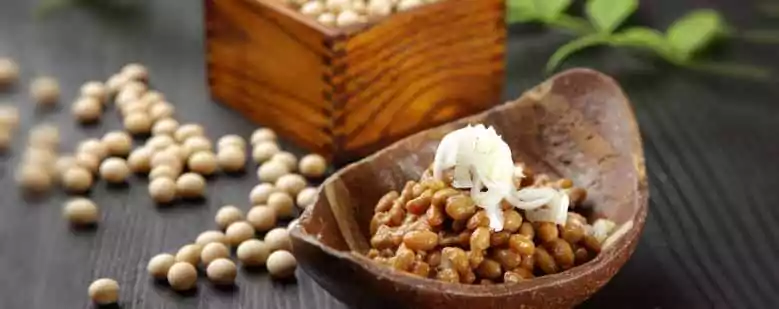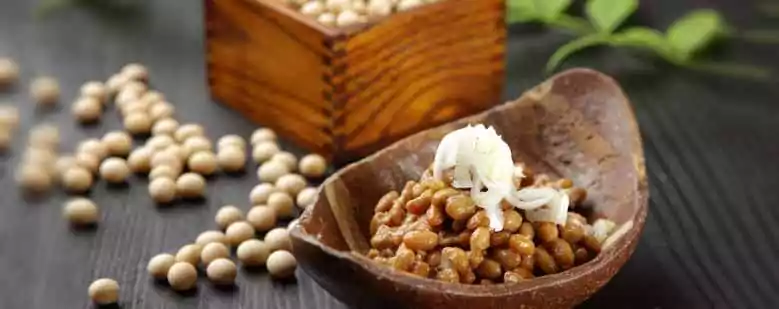
Diet Guide & Principles
Probiotics And Diabetes: What Amazing New Research Reveals
Feb 16, 2017Diabetes is a dietary and digestive disorder. Clearly, it’s about elevated blood sugar levels. But hey, it’s also more than that. The food we eat feeds the bacteria in our gut. Eat too many carbs/processed foods and you feed the wrong bacteria. Often, diabetics get the disease by doing exactly that. Too much sugar simply translates into the overgrowth of bad bacteria (like yeast). So, it comes as no surprise that probiotics (good gut bacteria) and diabetes are closely linked.
Direct Impact Of Probiotics On Diabetes
Probiotics play a huge role in digestion. Many of us are ignorant about the importance and benefits of probiotics. Probiotics, or good gut bacteria, should ideally comprise at least 80% of the total gut bacteria. If you are diabetic, adding probiotics, as either food or supplements, can change things dramatically. Of course, you also need to eat the right diet to feed the right bacteria after that. Some of the best probiotics for diabetics modify disturbances in their metabolisms positively. There is strong scientific evidence supporting the fact that consuming probiotics helps decrease the serum cholesterol level and improves insulin sensitivity.
Probiotics and Diabetes: The Science Behind It
How does probiotics help diabetics? Probiotics are live microorganisms which, when administered in correct dosages and form, give you a ton of health benefits. Probiotic supplements have been proven to have positive effects on cardio-metabolic parameters in patients with Type 2 Diabetes.
According to research conducted at Loughborough University, probiotics prevent insulin resistance. Insulin resistance is often caused by consuming foods that contain trans fats for a long time. The study found that a high trans-fat and processed food diet can reduce insulin sensitivity by as much as 27%, in healthy adults. Supplementation with probiotics helped normalize insulin functioning.
“Even short-term consumption of high-fat, processed foods aids the development of metabolic diseases, diabetes type 2 being one of them. However, probiotics’ impact on insulin resistance is a significant breakthrough. Also, probiotics can reduce fasting blood glucose levels in type 2 diabetic patients,” said Dr. Carl Hulston of Loughborough University.
Type 1 diabetics are people who have lost the ability to produce any insulin naturally. In a ground-breaking study, researchers engineered a strain of Lactobacillus, a human probiotic. This was done to secrete a chemical called GLP-1 from it (which is naturally produced in the human body.) It was, then, administered orally to diabetic rats.
The compound GLP-1 made the inner skin cells of the rats’ intestines act like pancreatic cells. Pancreatic cells monitor blood glucose levels and balance insulin in the body. After 90 days, it was found that the diabetic rats were able to reduce their blood glucose levels since they were able to produce insulin by themselves. This study gives hope for gauging the advantages of probiotics for Type 1 diabetics as well.
Can Probiotics Help Diabetes?
Probiotics have significant effects on the reduction of the following in individuals with diabetes
- Glucose
- HbA1c
- Insulin levels
- Insulin resistance
Probiotic bacteria communicate with and trigger immune responses, not just in the GI tract but throughout the body. Probiotics mediate stress responses and handle blood sugars better, rather than flooding the system when exposed to everyday stressors.
Obesity and a diet rich in processed, high-fat foods result in insulin resistance, which eventually leads to type 2 diabetes. It leads, also, to less glucose uptake by muscle cells. More sugar is released from the liver, in this situation. The pancreas is also impacted, leading to reduced insulin secretion. Studies also reveal that when you eat the wrong foods and upset the balance of good bacteria in the gut, you make yourself vulnerable to several other health conditions. The wrong bacteria make your gut leaky which can, in turn, lead to toxins leaking into the blood. With time, this could cause a host of autoimmune diseases like –
- Crohn’s disease
- Multiple Sclerosis
- Lupus
- Rheumatoid Arthritis and many others
All this only adds to the benefits that probiotics have on diabetics in ways that go beyond blood sugar control.
However, it is also important to realize that several factors, besides diet, affect blood sugar control and insulin function in the human body.
- For example, if you’re not sleeping right, it can affect your blood sugar in the morning.
- A simple walk, after dinner, can make a huge difference on how your body handles blood sugar.
- Ensuring that your body gets the right nutrients, like Magnesium, Vitamin D and Chromium and make a huge difference.
Diabetes is a system-wide disorder, one that can respond amazingly well to small changes across a variety of areas. That’s where probiotics come in.
Present research data shows that probiotics can improve glucose metabolism. The effect is more powerful when the duration of the intervention is more than 8 weeks. Ensuring that the probiotic has multiple species of good bacteria also seems to make a marked difference. Choosing the right probiotic is an important first step.
Probiotic food and supplements (taken separately or together) have beneficial effects on lipid profile, glycemic control, inflammation and blood pressure in T2D patients.
5 Best Probiotic Foods For Diabetics
While probiotic supplements are highly recommended for type 2 diabetes patients, some of the best probiotics for diabetes also come from natural foods. Here are our top picks:
Kefir
A liquid form of yogurt, kefir has a creamy, tangy taste. It contains dozens of live and active probiotic cultures, including beneficial yeast strains. We recommend the unsweetened variety.
Yogurt
It contains active cultures of gut-healthy bacteria. Yogurt is an excellent probiotic to add to your everyday diet and there are varieties you can choose from. Greek yogurt and Middle Eastern ‘Labneh’ are excellent choices.
Kimchi
If you like Korean food, you’re probably not a stranger to Kimchi. This spicy, cabbage-pickled salad is one of the best probiotic foods for diabetics. It is low on carbs and full of fiber.
Sauerkraut
If you can’t handle the heat from Kimchi, Sauerkraut is an excellent probiotic for you. Low on carbs, raw sauerkraut often contains 15 or more different species of gut-friendly bacteria.
Nattō
Made from fermented soybeans, nattō is a common Japanese food. Rich in Vitamin K, nattō is one of the best probiotics out there. It’s a little bit of an acquired taste, but is well worth it!
Other foods that are rich in probiotics are miso, tempeh, buttermilk, cottage cheese and some aged cheeses like Swiss and Gouda. Most probiotic rich foods have a low glycemic index. This makes them less likely to cause a spike in blood glucose levels. So, go ahead and add these healthy foods to your diabetic diet plan and enjoy the taste while you’re at it.
References:
1. Effect of Probiotics on Glycemic Control: A Systematic Review and Meta-Analysis of Randomized, Controlled Trials – https://www.ncbi.nlm.nih.gov/pmc/articles/PMC4498615/
2. Probiotic supplementation prevents high-fat, overfeeding-induced insulin resistance in human subjects – https://www.ncbi.nlm.nih.gov/pubmed/25630516
3. Probiotic supplementation prevents high-fat, overfeeding-induced insulin resistance in human subjects – https://www.cambridge.org/core/journals/british-journal-of-nutrition/article/div-classtitleprobiotic-supplementation-prevents-high-fat-overfeeding-induced-insulin-resistance-in-human-subjectsdiv/5D1FA04446458C03DC71C5E5FE2EB705
4. Engineered commensal bacteria reprogram intestinal cells into glucose-responsive insulin-secreting cells for the treatment of diabetes – https://www.ncbi.nlm.nih.gov/pubmed/25626737
5. Effect of Probiotic Fermented Milk (Kefir) on Glycemic Control and Lipid Profile In Type 2 Diabetic Patients: A Randomized Double-Blind Placebo-Controlled Clinical Trial – https://www.ncbi.nlm.nih.gov/pmc/articles/PMC4401881/
6. Effect of probiotics on glucose metabolism in patients with type 2 diabetes mellitus: A meta-analysis of randomized controlled trials – http://www.sciencedirect.com/science/article/pii/S1010660X15001147









